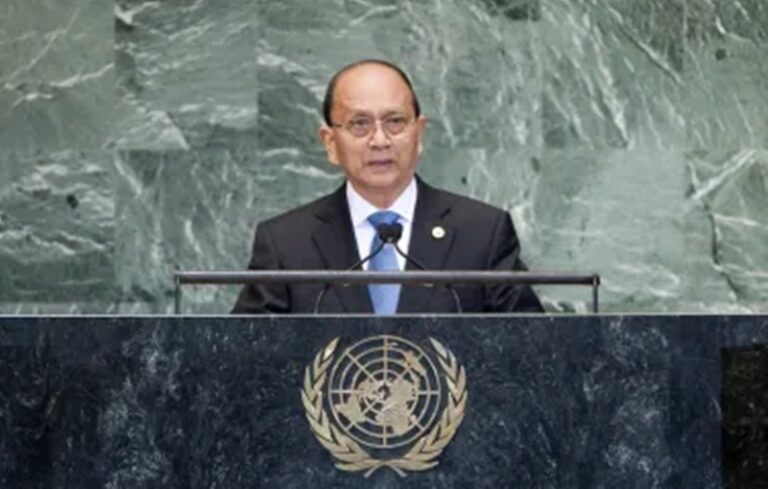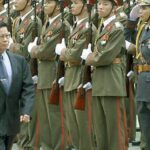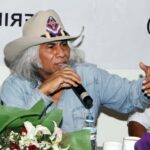
General Thein Sein
Thein Sein is a retired Burmese military officer and politician who served as the 8th President of Myanmar from March 2011 to March 2016. He played a key transitional role in Myanmar’s shift from full military rule to a quasi-civilian government and is often remembered as a moderate reformer within the military establishment.
🧑✈️ Early Life and Military Career
Born: April 20, 1945, in Kyonku village, Ngapudaw Township, Ayeyarwady Region, Myanmar (then Burma)
He graduated from the Defence Services Academy (DSA) in 1968 and rose steadily through the ranks of the military (Tatmadaw).
Known for his loyalty, discipline, and low-profile nature, Thein Sein was viewed as a reliable figure by Senior General Than Shwe.
🏛️ Rise in Politics
2004–2007: Served as the Secretary-1 of the State Peace and Development Council (SPDC), the military junta.
2007–2011: Appointed Prime Minister by Than Shwe after a cabinet reshuffle following the crackdown on the Saffron Revolution.
Played a visible role during the response to Cyclone Nargis in 2008, which brought international scrutiny to the junta.
🧑⚖️ Presidency (2011–2016)
After Myanmar’s controversial 2010 elections (boycotted by the National League for Democracy), Thein Sein became president under the new military-drafted 2008 Constitution.
Key Reforms and Achievements:
Freed Political Prisoners – Released hundreds, including some prominent dissidents.
Legalized Trade Unions and Protests – Eased restrictions on civil society.
Media Liberalization – Relaxed censorship laws for the press.
Engaged with the West – Opened diplomatic channels with the U.S. and EU; hosted U.S. President Barack Obama in 2012.
Peace Talks with Ethnic Groups – Initiated the Nationwide Ceasefire Agreement (NCA) process.
Allowed Aung San Suu Kyi to Enter Parliament – Her party won by-elections in 2012, marking a turning point in political openness.
🪧 Criticisms and Limitations
Despite reforms, the military retained major power, especially through control of security ministries and 25% of parliament.
Accused of inaction or weak leadership during the 2012 anti-Muslim riots, particularly in Rakhine State.
Reforms were seen as top-down and cautious, with deep structures of military control remaining intact.
👥 Post-Presidency and Legacy
Thein Sein did not run in the 2015 general elections, in which the NLD won a landslide victory.
He retired from active politics but occasionally appeared in military-backed political forums.
His presidency is viewed as a pivotal transitional period—he earned cautious praise for creating space for democratic actors, even though the system remained heavily influenced by the military.
🏁 Summary
Thein Sein is remembered as:
A pragmatic reformer from within the military who presided over Myanmar’s tentative opening.
A transitional figure who laid the groundwork for the NLD’s electoral rise.
A leader who helped end Myanmar’s deep international isolation without threatening the military’s core interests.
o.





